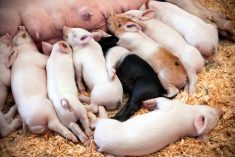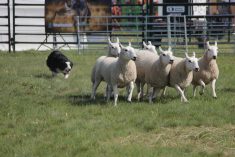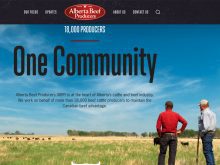KANANASKIS, Alta. – Less than a month on the job, the new minister of agriculture in British Columbia has been handed a super-sized department.
It is now the ministry of agriculture and land and Pat Bell is taking over a department that was once considered a poor cousin to the other resource departments. Under previous governments, farmers feared they could lose the department altogether. Instead, premier Gordon Campbell ordered a stronger presence with broader powers over agriculture and land use.
“The new ministry incorporates responsibility for anything that has to do with the land act that includes land use planning, integrated management, species at risk and recovery plans,” Bell said.
Read Also

Dennis Laycraft to be inducted into the Canadian Agricultural Hall of Fame
Dennis Laycraft, a champion for the beef industry, will be inducted into the Canadian Agricultural Hall of Fame this fall.
“The most important piece of the equation is that we now have a minister of agriculture who also has direct responsibility for the land base.”
Bell has a forestry background and is learning the diversity of agriculture in the province, where only about five percent of the land base is arable.
Since BSE closed U.S. borders to Canadian cattle two years ago, the province’s beef industry has slightly declined. The premier and the new minister want it rebuilt.
That rebuilding starts on ranches that depend on crown grazing land for forage.
Grazing leases on crown lands remain under the ministry of forests and range because grazing takes place among trees.
However, working with the new forestry minister, Rich Coleman, Bell wants to create new models of tenure and grazing leases.
Some of those changes could include opening more forest land where mountain pine beetles have killed thousands of acres of trees that must be removed, leaving the land open for grazing or other types of agriculture.
For the B.C. Cattlemen’s Association, improved grazing and better contracts seem like good news, said spokesperson David Borth.
“We may have to teach the logger something about agriculture,” he said.
The association sees the revamping of the industry as positive and hopes Bell can offer more security for land users like the ranchers.
As an owner of Wendy’s Restaurant franchises, Bell is pro-business, such as encouraging new abattoirs and other food processors to come to B.C.
“We have to create the right environment to make people want to invest in the industry. Forced investment does not work,” he said.
The province will not build processing plants but he is meeting with potential processors who may be interested in creating smaller outlets.
“The question I’m going to be asking them is, ‘what is it going to take to create the right investment climate for you to come to British Columbia?’ “















